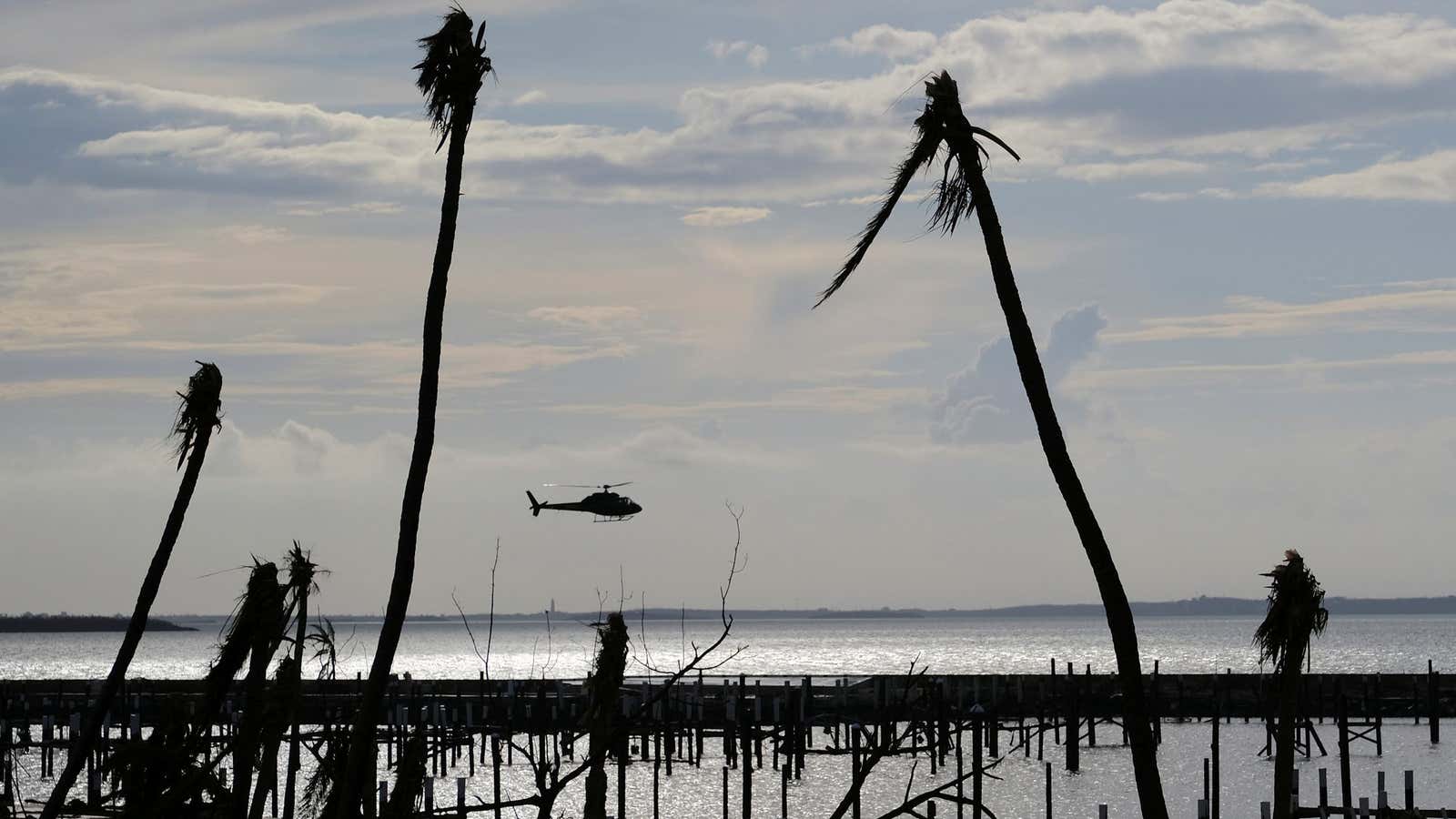Miami has a long history of responding to extreme weather. In 1992, the city faced 145 mph winds from Hurricane Andrew, which caused $27.3 billion in damages. Two years ago, it dealt with 3.9 feet of storm surge from Hurricane Irma. But Miami’s mayor, Francis X. Suarez, says the city has no means to protect itself from the kind of “super hurricanes” threatening the region.
The combination of storm surge and wind speed in Dorian was “beyond our imaginations,” Suarez said today at a summit on climate change at the Council on Foreign Relations in New York City. “It sat on top of the Bahamas for two days. We’re not even prepared to think about preparing for an event of that size.”
That’s not to say Miami is doing nothing. The Miami mayor works with other city leaders to implement climate change policy; Los Angeles mayor Eric Garcetti invited Suarez to join the C40 World Mayors Summit on climate change. “Cities are now leading in the absence of federal leadership,” said Suarez. “I don’t go to work thinking the federal government is going to bail us out of this problem.”
In particular, Miami citizens have voted for a program called “Miami Forever,” which will use $200 million of tax revenue to mitigate the impact of sea level rise on the city. But Suarez recognizes that it won’t be enough to protect against the long-term threats of climate change. “Once we start implementing Miami Forever,” he said, “we’re going to have to implement another round of Miami Really Forever.”
In a state where senators Rick Scott and Marco Rubio and governor Ron DeSantis are not always receptive to discussing human-made climate change, Suarez has developed specific methods to engage with the representatives. “The conversation for them is about infrastructure, which clearly needs improving; flooding, which we clearly get; and water quality,” he said. “It’s the way you talk about these issues that gets people’s attention. Making it about economics, making it about flooding.”
Suarez added that he prefers to focus on the solutions to extreme weather events, rather than the causes. “The reality is, we’re seeing these more intense events, we’re seeing these mega-hurricanes. Nobody’s disputing that and nobody thinks that’s a Democrat or Republican issue,” he added.
The panel moderator, New York Times reporter Anne Barnard, asked if that means he has conversations about climate change where the words “climate change” aren’t mentioned. Maybe it’s a bit of a dance, he replied. “It’s a little bit of salsa,” said Suarez.
Correction (Sept. 25th): This article originally stated Senator Rubio is not receptive to environmental issues. I’m fact, he supports many environmental policies, but expressed skepticism about the human impact on climate change.
